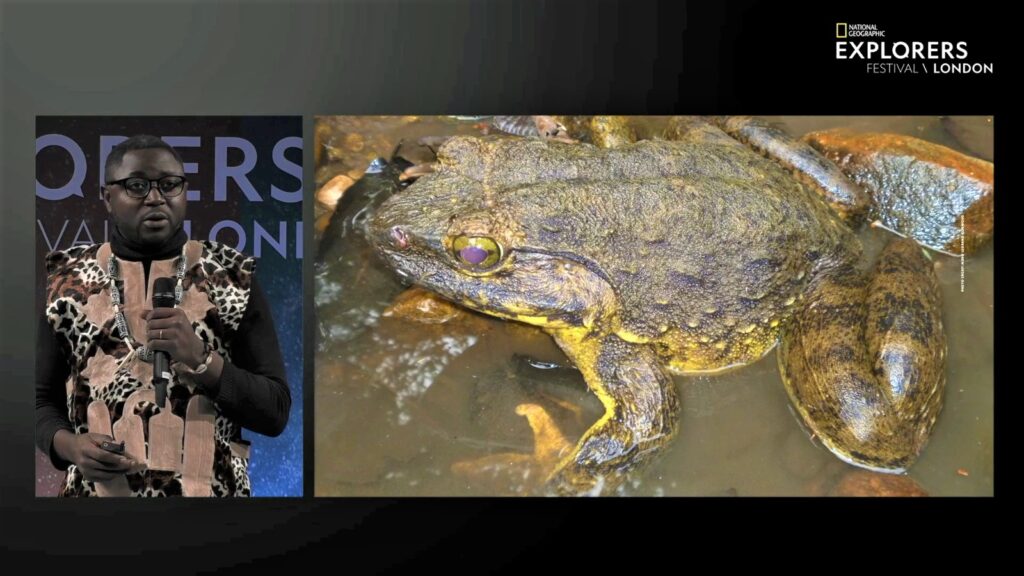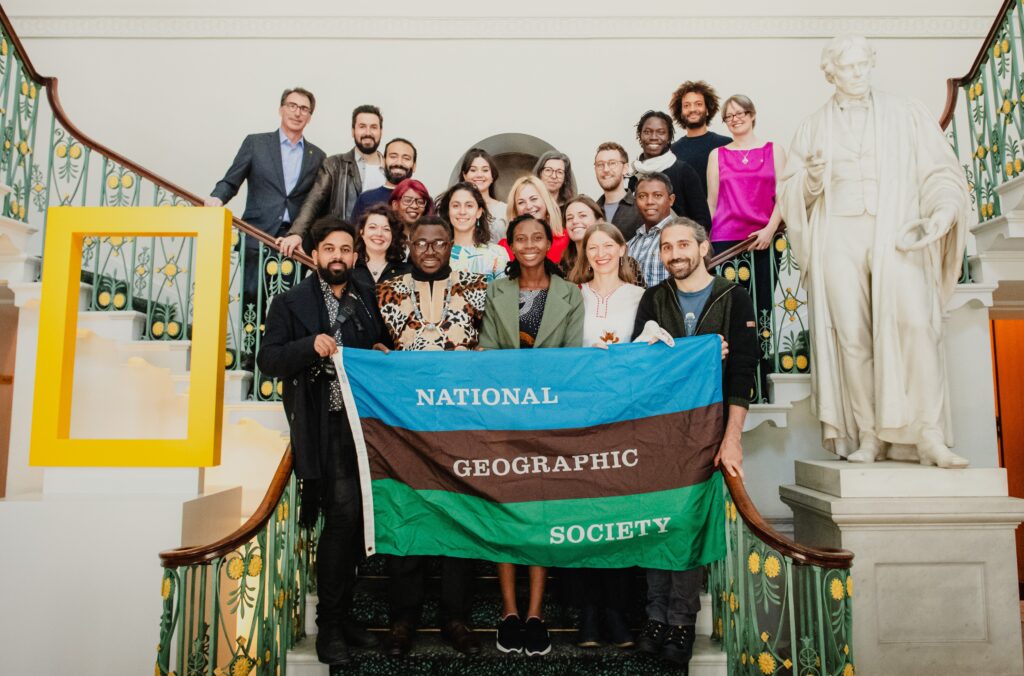The Executive Director (ED) of Voice of Nature (VoNat), Ndimuh B. Shancho, recently participated at the National Geographic Explorers Festival in London, where he presented on the plight of the world’s largest frog, the goliath frog (Conraua Goliath) in the Mount Nlonako Area of Cameroon. The National Geographic Explorers Festival is an annual event of the National Geographic Society that brings together innovative scientists, conservationists, explorers, and storytellers from around the world to share their discoveries, insights, and solutions for creating a more sustainable future.

The fourth edition of the Festival ran from April 17 to 21, 2023, at the Royal Institution in London. Ndimuh B. Shancho and 13 other explorers from Europe, the Middle East, and Africa received training on public speaking, narrative development and visual storytelling amongst others. Each of the explorers also gave a short presentation on their work funded by the National Geographic Society in the presence of other National Geographic explorers, staff of the National Society and Disney, and students from different higher institutions in the UK and London.

Ndimuh used his presentation to highlight the goliath frog/conservation threats, and actions which his Organization, VoNat, is taking to conserve the species in the Mount Nlonako Area, Littoral Region of Cameroon. He also underscored the need for international support to save the world’s largest frog from the brink of extinction. “The goliath is endangered on the IUCN Red, and is found only in Cameroon and Equatorial Guinea. With the rate at which they are being harvested, this emblematic species may disappear in the near future if no urgent conservation actions are taken now,” he stated.

Otherwise known as the giant slippery frog, the goliath frog is the largest living frog on earth. It has a length of up to 32cm and weighs about 3.8 kilo, like the weight of a newborn baby. It lives in fast flowing rivers, secondary forests, farmlands, and small pools in streams from where it comes out at night to feed on insects and other amphibians. Through its feeding habit, the species contribute to limiting the spread of diseases like malaria and yellow fever, which are deadly diseases in Cameroon and other Africa countries. Despite this invaluable role of the species in the ecosystem and its cultural values, about 20,000 are said to be harvested every peak season for food and pet trade. This means that about 5000 of the giant disappear from the wild in Cameroon every month, a situation that makes the future of the species in this area very bleak.
